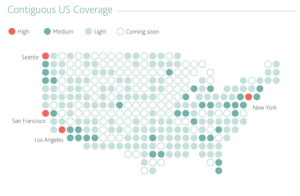On April 24, a computer outage hit 7,000 U.S. Starbuck’s company-owned stores and 1,000 Canadian company-owned Starbuck’s locations. The outage was resolved Friday night after several hours.
Questions:
1. Did all locations deal with the problem in the same way? What did they do?
2. Why do you think that the outage did not affect licensed stores?
3. What was the source of the glitch?
4. Do you think that Starbuck’s needs a disaster plan for each store in the event that this happens again?
5. Were you surprised that they gave away coffee? How do you think they will account for this?
Source:
Associated Press Staff writer. (2015). Starbucks stores reopen after computer glitch led to free coffee for some. The Guardian, April 25. (Retrievable online at http://www.theguardian.com/business/2015/apr/25/starbucks-fixes-computer-glitch-that-gave-customers-free-coffee)




















